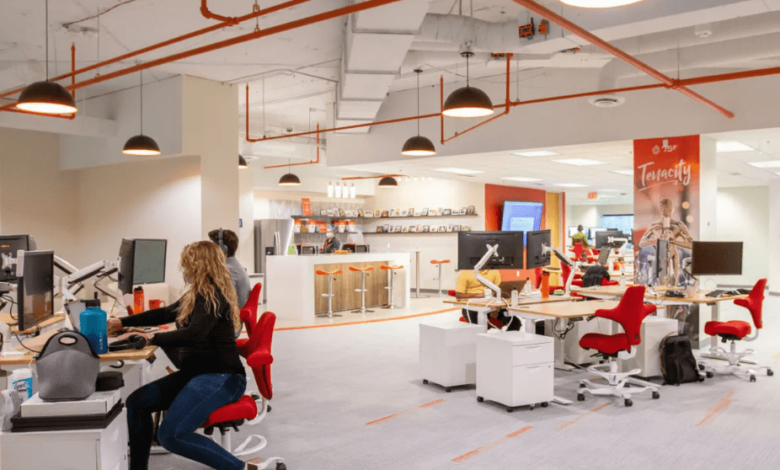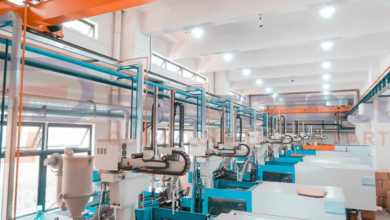Smart Office Solutions: Shaping the Future of Workplaces

At the center of this shift are smart office solutions redefining how organizations function, how employees engage with their work, and how operational efficiency is achieved. These solutions are no longer limited to Silicon Valley tech giants—they’re now within reach of businesses of all sizes, across industries.
As the modern workforce grows more dynamic, flexible, and mobile, smart office solutions are emerging as the bridge between digital convenience and workplace functionality. In this article, we’ll explore what smart office solutions really mean, how they’re transforming the workplace, their benefits, and the future they promise.
What Are Smart Office Solutions?
Smart office solutions are integrated technologies designed to automate, optimize, and enhance the workplace experience. They combine Internet of Things (IoT) devices, software applications, data analytics, and artificial intelligence to manage everyday operations and create a more responsive, efficient, and engaging office environment.
These systems can monitor energy use, improve space utilization, assist with hybrid work arrangements, boost collaboration, and increase employee satisfaction. Smart office solutions go beyond mere gadgetry—they offer a strategic and sustainable path toward smarter business management.
See also: How Technology is Transforming Logistics in Hong Kong
Key Components of Smart Office Solutions
Smart offices rely on a combination of technologies that work together seamlessly.
🖥️ IoT-Enabled Devices
IoT sensors gather real-time data on occupancy, lighting, temperature, air quality, and usage patterns. These devices automatically adjust settings to ensure optimal working conditions, helping reduce energy costs and waste.
☁️ Cloud-Based Collaboration Platforms
Applications like Microsoft Teams, Zoom, Slack, and Google Workspace allow teams to collaborate effortlessly regardless of location. Cloud-based platforms form the digital backbone of smart offices, especially in hybrid or remote setups.
🔐 Smart Access and Security
Touchless biometric scanners, mobile access credentials, and real-time visitor management systems enhance both security and convenience. These tools protect sensitive areas while allowing seamless access for authorized users.
🧠 AI and Automation
From AI-powered scheduling assistants to smart maintenance alerts, artificial intelligence simplifies administrative tasks and optimizes workflows. Machine learning algorithms also provide predictive insights on office performance and utilization trends.
💡 Smart Lighting and HVAC
Lighting systems adjust based on daylight availability or presence of people. Similarly, smart HVAC systems learn usage patterns and regulate temperature to create an energy-efficient and comfortable space.
Benefits of Implementing Smart Office Solutions
Adopting smart office solutions brings measurable improvements across various aspects of workplace management. Here are some of the most compelling advantages:
1. Higher Productivity
When the workplace is automated and adaptive, employees can focus more on meaningful tasks rather than routine administrative work. Smart tools also reduce time wasted on searching for resources, booking rooms, or resolving environmental discomfort.
2. Optimized Use of Office Space
Real-time occupancy data helps companies understand which areas are underutilized and which are overcrowded. This insight allows for more strategic space planning, possibly reducing real estate costs.
3. Enhanced Employee Experience
From personalized climate control to noise level regulation and wellness monitoring, smart office solutions are designed to make the workplace more comfortable and human-centric. Happy employees are more productive and less likely to seek employment elsewhere.
4. Reduced Operational Costs
Energy-efficient systems, predictive maintenance, and automation significantly reduce overhead. Smart lighting alone can cut electricity consumption by up to 70%, while better space management can reduce rental expenses.
5. Improved Sustainability
Green workplaces are a priority in the modern business world. Smart office solutions contribute to sustainability goals by minimizing energy use, reducing paper waste, and supporting green building certifications like LEED and WELL.
Smart Office Solutions and Hybrid Work Models
With employees working from various locations, businesses need tools to manage resources, collaboration, and office attendance effectively.
Smart booking systems, occupancy tracking, and remote connectivity tools make it easier to support flexible schedules. Employees can see who is in the office, reserve desks in advance, and join meetings from anywhere—all managed through a single platform.
Challenges in Adopting Smart Office Solutions
Despite their advantages, the adoption of smart office solutions can come with certain hurdles:
🔧 Integration Complexity
Ensuring that different devices and systems from various vendors communicate effectively requires careful planning. IT infrastructure upgrades may also be necessary.
💰 Initial Investment
While long-term savings are substantial, the upfront costs of smart technology installation can be significant for small or mid-sized businesses.
What’s Next for Smart Office Solutions?
The future of smart office technology is evolving quickly. Here’s what we can expect:
📶 5G and Edge Computing
Faster connectivity will enable more real-time automation and data processing at the edge, reducing latency and enhancing system responsiveness.
🧠 Advanced AI Integration
AI will move from task-based automation to predictive modeling, helping leaders make informed decisions about employee wellness, workflow improvements, and office design.
👓 Immersive Experiences
Technologies like AR and VR will be used for virtual office tours, remote collaboration, and training simulations—especially useful for distributed teams.
🌱 Climate-Responsive Workspaces
Sensors will work in sync with external climate data to adjust energy consumption dynamically, further improving efficiency and sustainability.
Final Thoughts
Smart office solutions are more than a passing trend—they’re an essential investment for the future of work. By creating intelligent, adaptive, and people-focused environments, these solutions offer organizations a way to boost performance, cut costs, and stand out in a digital-first world.
Whether you run a startup, a large enterprise, or a co-working space, embracing smart office technologies can empower your team, improve resource management, and transform the way you do business.





